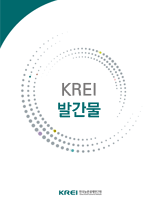


식품소비
The study of consumer behavior has a long history and is one of the most studied areas in economics. The demand analysis has significantly advanced from both theoretical and empirical perspectives. However, there remain several methodological issues in applying the micro-economic consumer theory fo...
The study of consumer behavior has a long history and is one of the most studied areas in economics. The demand analysis has significantly advanced from both theoretical and empirical perspectives. However, there remain several methodological issues in applying the micro-economic consumer theory for empirical study of consumer behavior, especially using the retail checkout scanner data.
When we consider to understand and to measure responsiveness of consumer behavior to changes of exogenous variables as one of the main objectives of the consumer behavior study, our empirical measure of responsiveness of consumer behavior to changes in exogenous variables relies on several specification choices in the chosen empirical model. First, the measure depends on the classification and aggregation to define price and quantity variables themselves. This issue is important because small departures from valid classification and/or aggregation can result in large mistakes in empirical results. For example, the decision on classification and aggregation can substantially affect the conclusions about elasticity estimates in multi-stage budgeting approach because cross-price elasticity or cross-quantity flexibility between products in different groups is likely to be small by construction.
Second, given that there are full spectrums of direct, inverse, and mixed demand systems but the general relationship between elasticity and flexibility is not yet established, the measure depends on the relative predeterminess among the price and quantity variables represented by dependent and explanatory variables in an empirical model of a specific commodity. Third, the measure depends on the functional form to relate dependent variable with explanatory variables, given that the different assumptions used to parameterize functional relationships have different implications. For example, there are four combinations of constant or variation assumptions for the income (or scale) coefficient and Slutsky (or Antonelli) coefficient in the differential functional form approach as captured in Rotterdam, LA/AIDS, CBS, NBR specifications.
In this study, we propose an inductive empirical method to address these three methodological issues in the study of consumer behavior based on the discussion on the aggregation and causality issues. In addition, the way to incorporate theoretical implications into empirical model specifications through the functional forms and the way to compare different specifications of direct, inverse, and mixed demand functions are the additional issues to be addressed.
More specifically, first, the classification and aggregation issue are addressed based on the index number theory and aggregation theory. Second, the specification choice issue among direct, inverse, and mixed demand functions is addressed by using the inductively inferred causal information based on the graphical causal models. Third, the functional form issue is addressed by the synthetic model approach based on the differential functional form framework. And the comparison of alternative specifications is conducted in terms of model selection framework. The proposed method is illustrated with the applications for soft drink products using retail checkout scanner data.
KREI의 출판물은 판매 대행사 (정부간행물판매센터)와 아래 서점에서 구입 하실 수 있습니다.
| 교보문고 | http://www.kyobobook.co.kr/ |
|---|---|
| 영풍문고 | http://www.ypbooks.co.kr/ |
| 알라딘 | http://www.aladin.co.kr/ |
| 상세정보 조회 | 좋아요 | 다운로드 | 스크랩 | SNS공유 |
|---|---|---|---|---|
| 10486 | 0 | 1 | 0 | 0 |